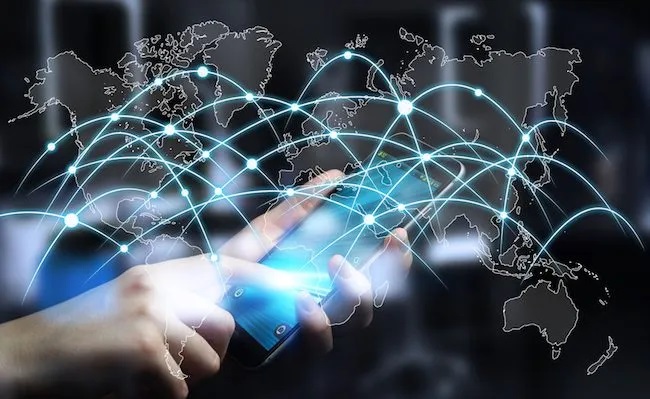MEF’s Riccardo Amati shares his take on the week’s mobile and tech stories from around the world. Headlines include… AWS Outage Exposes Cloud Fragility, iPhone 17 Demand Surges, Apple Hits New Heights, Huawei HarmonyOS Goes Cross-System and much more… Alternatively listen On MEF Radio.

AWS Outage Exposes Cloud Fragility
We start with a major cloud disruption: Amazon has blamed a software bug for this week’s massive AWS outage that knocked thousands of apps and connected devices offline worldwide. According to a detailed post-mortem, an error in Amazon’s automated DNS management system disabled access to its DynamoDB database, triggering a chain reaction that affected everything from banking apps and Ring doorbells to Signal, Snapchat, and even smart beds.
AWS has temporarily shut down the faulty automation globally and is adding extra safeguards. Experts warn this outage, which impacted over 8 million users, highlights the risks of heavy reliance on just a few cloud giants. In today’s mobile economy, it seems even your bed depends on the cloud.

iPhone 17 Demand Surges, Apple Hits New Heights
Next, Apple is riding high. Stock prices hit a record this week, fueled by early demand for the iPhone 17 series. Research from Counterpoint shows sales are up 14% compared to last year’s iPhone 16 launch in the U.S. and China.
The base iPhone 17 dominates in China, while U.S. carriers’ subsidies for premium users are driving strong sales of the Pro Max. Together, these trends have pushed Apple past Microsoft to become America’s second-largest company by market value, trailing only Nvidia. Analysts say this marks a rebound for Apple and signals a fresh upgrade cycle across the mobile ecosystem.

Huawei HarmonyOS Goes Cross-System
Huawei is pushing interoperability further with the launch of an upgraded HarmonyOS. The new version now allows file sharing with Apple devices using near field communication, meaning users can transfer data without an internet connection.
This update, following four months of developer testing, also brings stronger security and an expanded app ecosystem, now supporting more than 90 Huawei devices in public beta. With HarmonyOS 6 accommodating over 80 third-party AI agents, Huawei is strengthening its mobile ecosystem against Android and iOS rivals. Cross-system sharing is here—Huawei devices, now talking to Apple.

Telkom Indonesia Spins Off Fiber Business
Turning to infrastructure, Telkom Indonesia is spinning off its wholesale fiber connectivity business into a new subsidiary, Telkom Infrastruktur Indonesia, in a $2.16 billion deal.
The move aims to sharpen the company’s focus and maximize its fiber optic network, while the firm says overall financial impact will be limited. Analysts suggest this spin-off could streamline operations and boost efficiency in Indonesia’s fiber market—fiber growth, streamlined operations, Telkom is betting on connectivity.

European Satellite Giants Unite
Europe’s satellite industry is getting a makeover. Airbus, Leonardo, and Thales are merging their satellite operations into a joint venture called Project Bromo, aiming for €6.5 billion in annual revenue and 25,000 employees.
The merger, excluding launch services, combines satellite manufacturing, digital systems, and network operations, positioning Europe to better compete in defense, communications, and space-based mobile services. Airbus will hold 35% of the venture, with Leonardo and Thales each owning 32.5%, and operations will be based in Toulouse, France. The venture is expected to be operational by 2027. Europe’s satellites are joining forces—taking aim at global giants.

Starlink Eyes Early-2026 for Launch in India
Meanwhile, Starlink is testing satellite broadband in India ahead of a potential launch in early 2026. The service aims to integrate directly into the mobile ecosystem, selling straight to consumers—including rural users with limited connectivity.
The company is building at least ten satellite gateways, with Mumbai as the operational hub. By complementing existing mobile networks, Starlink could provide seamless satellite-to-smartphone connectivity, expanding the reach of digital services across India.

Vodafone Rolls Out AI Network Platform
Back in Europe, Vodafone is rolling out a new generative AI platform to speed up mobile network applications. Partnering with Zinkworks, the operator’s Rapid Radio Access Network Intelligent Controller platform lets engineers create rApps—software that optimizes signal quality, boosts capacity, and reduces energy use—in weeks rather than months.
Using Vodafone’s secure Google Cloud data ocean and a visual AI interface, the system requires minimal AI expertise, with built-in simulation for validation. Full deployment is expected by early 2026, with potential availability for other telecom operators, strengthening Europe’s open RAN ecosystem.

Google Claims Quantum Breakthrough
We begin with a claim from Google, which says it has achieved a milestone in quantum computing. The company reports developing an algorithm that successfully calculates the structure of molecules—something conventional supercomputers couldn’t do. Google says this marks the first verifiable “beyond-classical” computation, running 13,000 times faster than traditional methods.
Experts caution that this achievement applies to a narrow scientific problem, and fully fault-tolerant quantum computers capable of widespread use will require millions of qubits. Still, Google anticipates practical applications within five years, potentially boosting AI and advanced research.

U.S. Eyes Equity Stakes in Quantum Firms
In Washington, the Trump administration is reportedly negotiating with quantum computing companies—including IonQ, Rigetti, and D-Wave—to exchange federal funding for equity stakes, the Wall Street Journal reports.
Each company is seeking at least $10 million, reflecting a strategic push by the administration to own parts of emerging technology sectors. Deputy Commerce Secretary Paul Dabbar, a former quantum executive, is leading these talks, which could include equity, royalties, or intellectual property licenses. Quantum computing is seen as critical for next-generation computing, with applications ranging from drug discovery to materials science.

Anthropic Secures a Million Google Chips
Meanwhile, in AI computing, Anthropic has locked in access to one million Google Cloud chips, reports the Financial Times. The deal, worth tens of billions, will give over a gigawatt of capacity next year using Google’s Tensor Processing Units.
This will allow the startup to scale training and operation of its Claude chatbot models, complementing its multi-cloud strategy alongside Amazon Trainium and Nvidia GPUs. Google Cloud CEO Thomas Kurian said the expansion reflects the efficiency of TPUs, while Amazon remains a major investor with an $8 billion stake and a 2.2 GW data center cluster under development. This move highlights the global AI arms race and the scramble to secure compute resources.

Claude Enters the Life Sciences Lab
Anthropic is also moving Claude, its $170-billion AI model, into life sciences research, the Financial Times reports. By embedding Claude into tools for pharma researchers, data analysis, genomics, and literature reviews are dramatically accelerated—from weeks to minutes.
Novo Nordisk reports trial paperwork now takes just ten minutes, while Sanofi says most staff use Claude daily. The goal: faster drug discovery, lower R&D costs, and fewer dead ends. Claude’s system includes audit trails and safeguards against misuse, ensuring compliance with regulators and preventing applications such as chemical weapon design.

UK Cyber Chief Urges AI-Aware Security Plans
Back in the U.K., Anne Keast-Butler, head of Britain’s cyber and signals intelligence agency, warns that firms must do more to prepare for cyber-attacks as AI makes such attacks easier. She calls for tested contingency plans, including paper backups, cyber expertise on company boards, and cooperation with government and internet providers.
High-profile breaches, like one costing a major car manufacturer nearly £2 billion, underscore the growing threat. Keast-Butler also encourages secure information sharing between firms to strengthen defenses against future attacks.

Harry and Meghan Call for AI Pause
And in a move that blends celebrity and caution, Prince Harry and Meghan Markle have joined Nobel laureates and AI pioneers in urging governments to halt development of superintelligent AI.
The warning targets systems that could outthink humans—AI that already runs apps, predicts our playlists, or even guesses the emoji you’ll send next.
Joining figures like Geoffrey Hinton, Steve Wozniak, and Susan Rice, the royal couple’s letter calls for a pause until AI can be developed safely. In the mobile and tech world, even royals agree: some things shouldn’t be left entirely to machines.





